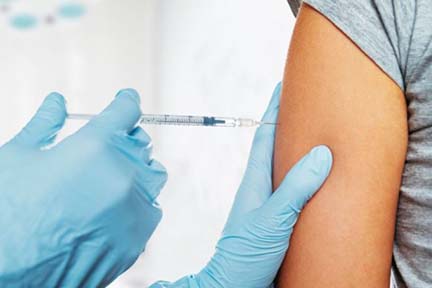
October is Liver Cancer Awareness Month
Press Release FOR IMMEDIATE RELEASE: Oct. 25, 2021 CONTACT: Chelsea Wuth, 517-241-2112, [email protected] October is Liver Cancer Awareness Month LANSING, Mich. – October is Liver Cancer Awareness Month. It is estimated there will be 1,180 new cases of liver cancer and 940 deaths from liver cancer in Michigan this year. Approximately 50% of liver cancer is related to hepatitis C, which is why it is important for all Michiganders to be screened. Hepatitis C, a virus spread through contact with blood from an infected person, is a leading cause of liver cancer; however, many people are unaware they are infected because there are often no symptoms and they do not feel sick. Over time, hepatitis C may become a chronic or long-term infection that can cause liver damage. When symptoms do appear, they often are a sign of advanced liver disease. In recognition of Liver Cancer Awareness Month, the Michigan Department of Health and Human Services (MDHHS) is encouraging Michiganders to contact their health care providers and ask to be tested for hepatitis C. The Centers for Disease Control and Prevention (CDC) have expanded their testing recommendations to encourage hepatitis C testing among all adults 18 and older at least once in their lifetime and during every pregnancy. While there is no vaccine for hepatitis C, there are safe and effective oral medications that can cure people living with the infection. Hepatitis C medications, called direct-acting antivirals, have greater than a 95% success rate with minimal side effects. Hepatitis C treatment is approved to treat children and adults ≥ 3 years of age. Early diagnosis and treatment can help prevent liver cancer and protect people from other severe health complications, including fibrosis (liver scarring) and cirrhosis (late-stage liver scarring). To eliminate hepatitis C in Michigan, MDHHS launched the We Treat Hep C Initiative on April 1. The initiative aims to expand access to hepatitis C treatment among Michigan Medicaid and Healthy Michigan Plan beneficiaries by lifting prior authorization requirements for the hepatitis C medication, MAVYRET®. Since MDHHS removed prior authorization on Mavyret on April 1, there has been an 80% increase in the number of beneficiaries who have received treatment. In addition to hepatitis C, excessive alcohol consumption, hepatitis B and non-alcoholic fatty liver disease are also risk factors for liver cancer. During Liver Cancer Awareness Month, MDHHS encourages Michiganders to:
Visit Michigan.gov/WeTreatHepC for more information on hepatitis C testing and treatment. Visit Michigan.gov/LiverCancer for more information on hepatitis C and liver cancer. |






